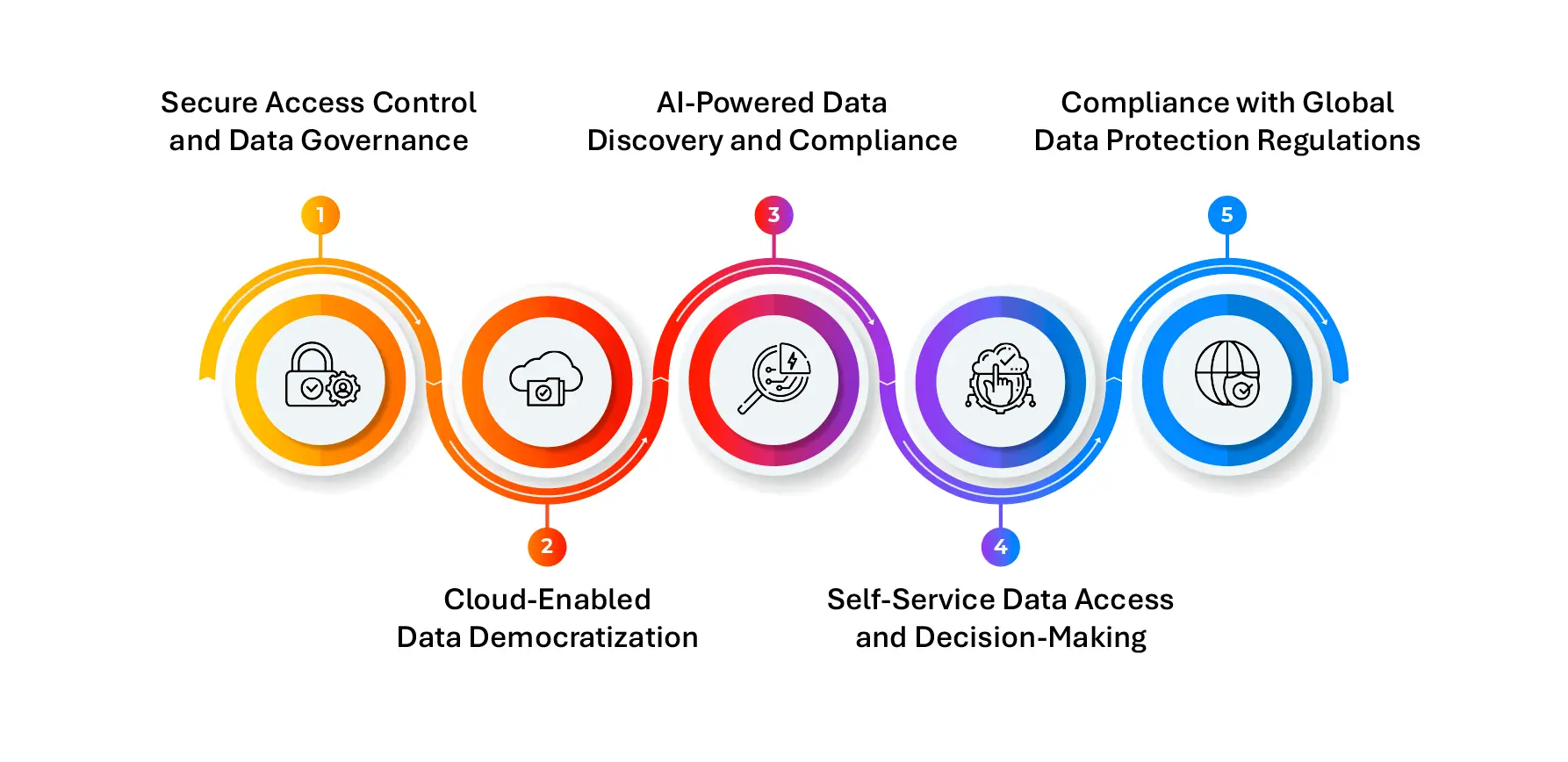What is Data Democratization?
Data democratization refers to the process of making data accessible, usable, and actionable across an organization, ensuring that insights are no longer confined to IT teams or data scientists. By breaking down traditional data silos and enabling self-service data access, businesses empower employees across functions to leverage data for decision-making, innovation, and operational efficiency.
In the age of cloud computing, AI-driven analytics, and decentralized governance, organizations are redefining how data is managed. However, democratization must be balanced with strong data governance, security, and access control to prevent risks associated with data breaches, compliance violations, and unauthorized access to sensitive data. With data sovereignty regulations and data protection laws becoming more stringent, enterprises must ensure that democratized data storage, transfer, and processing remain secure, ethical, and compliant.
Why is Data Democratization Important?
In a data-driven economy, organizations that embrace democratized data access gain a significant competitive advantage. The ability to leverage real-time data fosters agility, innovation, and smarter decision-making, enabling businesses to respond proactively to market changes.
However, without a structured approach, data democratization can lead to:
- Fragmented data ecosystems with inconsistent data governance
- Increased security risks due to unauthorized access to sensitive data
- Regulatory non-compliance in handling personal data and international data transfers
- Inefficiencies due to unreliable or inaccessible data sources
To maximize the benefits of data democratization, businesses must implement automated data governance frameworks, secure access control, and AI-driven compliance to ensure data sovereignty and regulatory alignment.
Key Components of Data Democratization

- Secure Access Control & Data Governance: For data democratization to be effective, organizations must implement role-based access control (RBAC), encryption, and zero-trust security to safeguard sensitive data. Identity and access management (IAM) solutions ensure that only authorized personnel can access and modify personal information, preventing security risks and compliance failures.
- Cloud-Enabled Data Democratization: With cloud computing driving digital transformation, businesses must align data democratization with data sovereignty regulations. Cloud providers offering sovereign cloud solutions help enterprises meet compliance requirements while maintaining seamless data accessibility across global teams. A hybrid approach—where data centers and cloud services work together—ensures organizations retain control over critical data assets.
- AI-Powered Data Discovery & Compliance: With the exponential growth of unstructured data, AI-driven solutions are essential for data classification, automated compliance enforcement, and risk assessment. By integrating AI into data governance, businesses can monitor real-time data transfers, identify data security gaps, and align with international data protection laws.
- Self-Service Data Access & Decision-Making: To fully democratize data, organizations must implement self-service data governance models that empower employees with secure and direct access to actionable insights. By reducing dependency on IT teams, self-service frameworks accelerate innovation, optimize workflows, and enhance collaboration across business units.
- Compliance with Global Data Protection Regulations: With governments enforcing stricter data sovereignty regulations, businesses must integrate automated compliance solutions to align with laws such as GDPR, CCPA, DPDP, and China’s Cybersecurity Law. This ensures that data democratization efforts remain legally compliant while protecting personal data and sensitive information from cyber threats.
The Future of Data Democratization
The next phase of data democratization will be driven by AI-powered governance, decentralized data control, and sovereign cloud adoption. As enterprises shift towards adaptive compliance models, they must ensure that self-service data management is embedded with strong access controls, AI-driven security, and automated regulatory compliance.
By integrating AI-driven analytics, cloud-enabled governance, and self-service data platforms, businesses can transform data democratization into a strategic advantage—enhancing enterprise intelligence, improving decision-making, and ensuring compliance with data sovereignty laws. Organizations that proactively embrace secure, scalable, and compliant data democratization will not only unlock innovation but also future-proof their data infrastructure for the AI-driven economy.
Getting Started with Data Dynamics:
- Read the latest blog: Data Democratization: Revolutionizing Access or Opening Pandora’s Box?
- Learn about our Unstructured Data Management Software – Zubin
- Schedule a demo with our team






